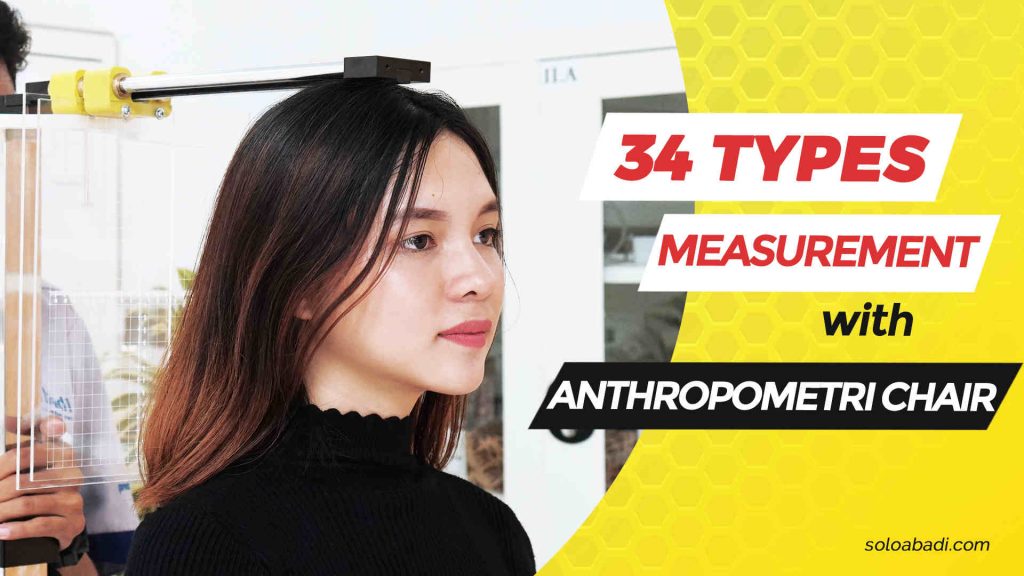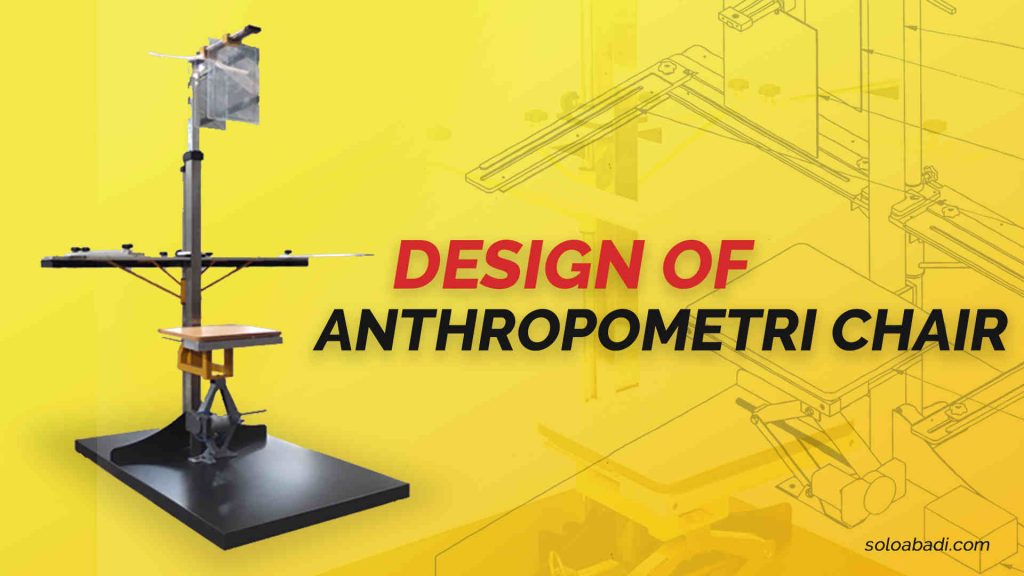For those who have been in the world of anthropometry, the term anthropometric chair is a familiar thing. The anthropometric chair becomes an important component that is used for anthropometric measurement needs, especially in the fields of Industrial Engineering and Product Design. The anthropometric chair is a device designed to take anthropometric measurements of the human body, especially in a sitting position.
Then, what is the anthropometric data obtained for? The answer is diverse. These data naturally become the reference of analysis used following their individual needs. For example, for industrial engineering, the data obtained can be used to design work environment designs that comply with standards. Whereas in product design majors, anthropometry is used to design mass products such as chairs, helmets, clothing and so on. Then, the results of this data are adjusted to the needs to be achieved.
Some questions that then arise are, how important is the use of anthropometric chairs in individual measurement needs?
34 Types of Measurements That Can Be Used with Anthropometry Chairs
In anthropometric measurements, specifically using anthropometric chairs, 34 measurements can be done more effectively and comfortably. Although 34 measurements were obtained manually. However, with the use of the Anthropometry Chair, the measurements obtained tend to be more effective and quite simply done by only one user.

On the anthropometric chair, 34 data that can be measured are:
a. Measurement of Standing Position Using Anthropometric Chairs:
1. Body Height Measurement
2. Measurement of Eye Height
3. Shoulder Height Measurement
4. Elbow Height Measurement
5. Fingertip Height Measurement
6. Bone Height Measurement
7. Hip Height Measurement
8. Measurement of Handheld Height
9. Measurement of Wrist Height
10. Measurement of Hand Reach Height
11. Measurement of Waist Height
12. Measurement of Width of Standing Hips
13. Measurement of Elbow Length to Wrist
b. Measurement of Sitting Position Using Anthropometric Chairs:
1. Measurement of sitting Popliteal Height
2. Head width measurement
3. Upper Shoulder Width Measurement
4. Sitting Shoulder Width Measurement
5. Measuring the width of the sitting hip
6. Hand Length Measurement
7. Measurement of Elbow Spans
8. Measurement of the length of the hand
9. Measurement of Height of Hand-Held Sitting
10. Measurement of Sitting Height
11. Measurement of Eye Sitting Height
12. Measurement of Sitting Shoulder Height
13. Measurement of Sitting Elbow Height
14. Measurement of Shoulder Length to Elbow Height
15. Measurement of Sitting Thigh Thickness
16. Measurement of Sitting Forearm Length
17. Measurement of Sitting Thighs
c. Face Measurement Using Anthropometric Chairs:
1. Head Length Measurement
2. Head Height Measurement
3. Measurement of eye chin height
4. Eye-to-eye measurement
Form of Anthropometric Chair Design
In designing anthropometric chairs, there are several important parts that are used to perfect the instrument. Some of the instruments in the design of anthropometric chairs are used to design comfort and safety in designing anthropometric chairs. There are 9 instruments used to design anthropometric chairs themselves are as follows:

- Head Area Measurer, used for measuring the face area.
- Forearm Gauges, to measure the dimensions of the forearms.
- Sitting Pads, to measure foot length and shoulder height setting.
- Base, the base of the subject’s base is used as the zero-point surface of the anthropometric chair.
- Measuring Height of the Range of Hands, measuring the height of the hand in a standing position and hands holding up to the top point.
- Measurement of Height, to measure height with the dimensions of the top side of the head.
- Shoulder Height Measurement, measuring the dimensions of the shoulder top height.
- Upper Arm Gauges, to measure the dimensions of the upper arm.
- Jack, to move the seat mat as a zero-point reference when the subject is sitting.
The Advantages of Anthropometric Chair in Solo Abadi
The following are some of the advantages of this anthropometric chair, particularly:

- Simple and safe procedure to use.
- It does not require experts, only need details in observing.
- Durable in use.
- Using the right method and easy to understand.
- Knockdown assembly system so that it can be stored in a concise and neat.
- The system raises and lowers the seat cushion that already uses hydraulics.
How Can You Purchase an Anthropometric Chair?

If you are interested in purchasing anthropometric chairs, please visit the link on the side. We will be ready to guide the purchases that you will make. However, if there are still many questions about the anthropometric chair, don’t worry about contacting us via the WhatsApp number available on our website.


